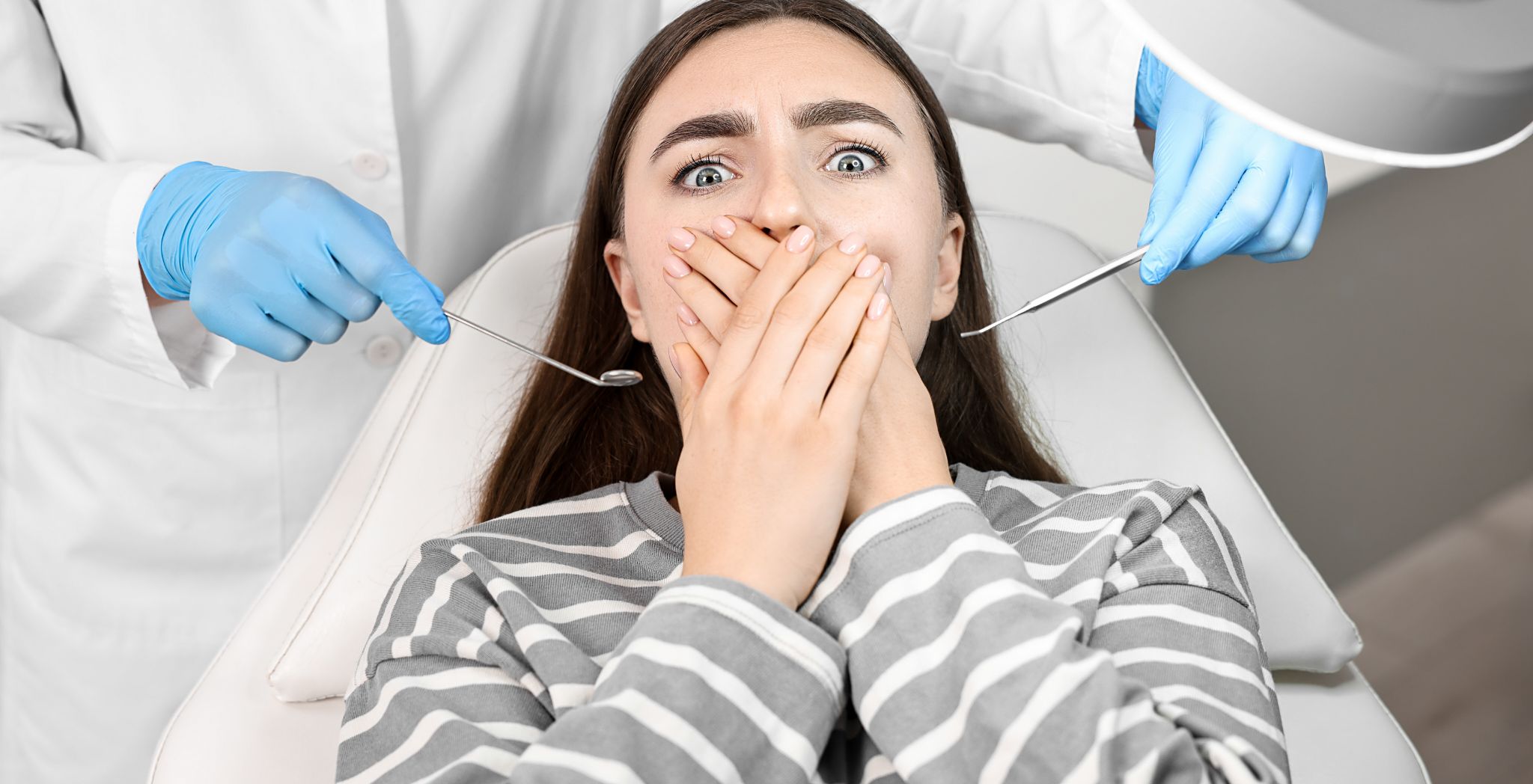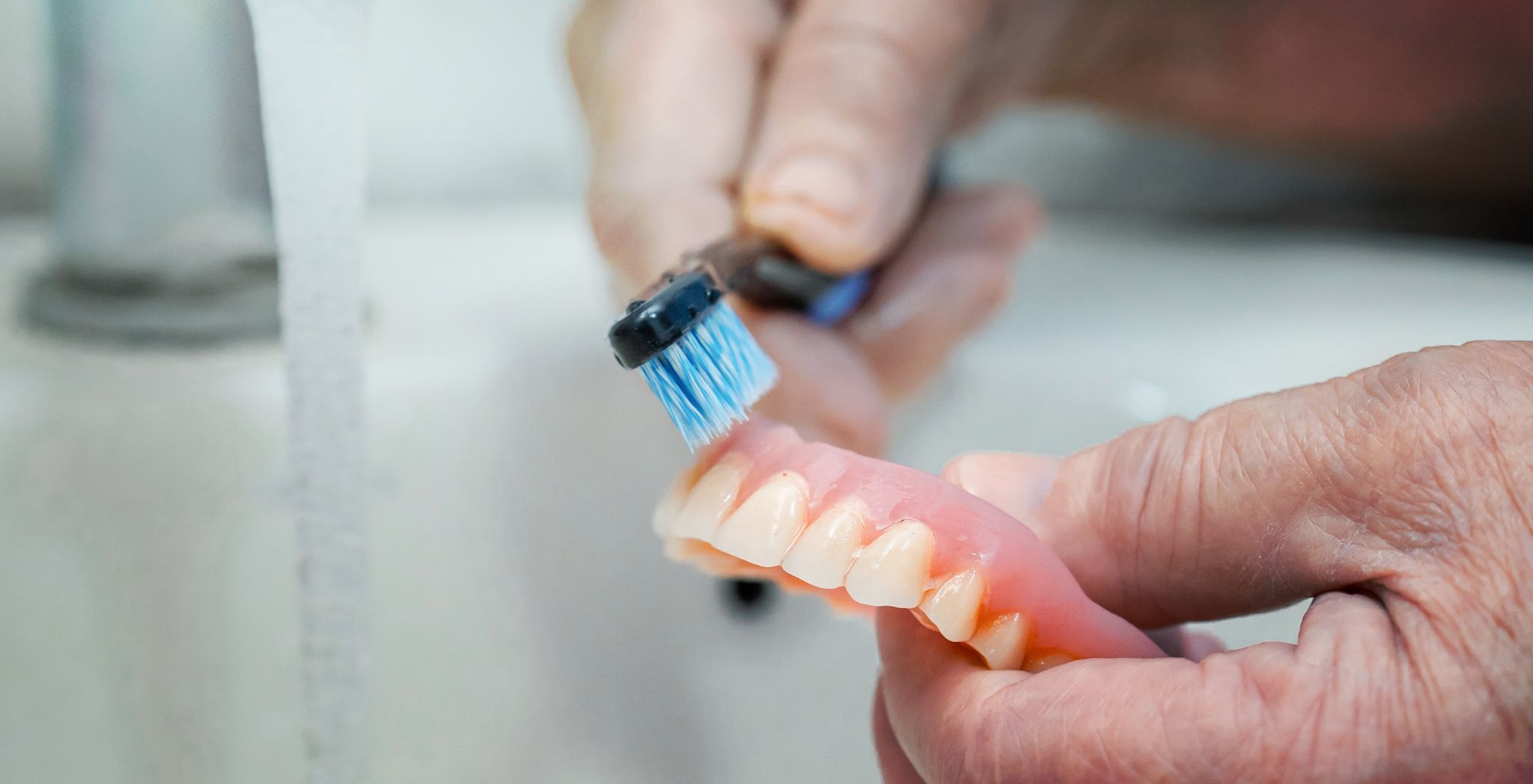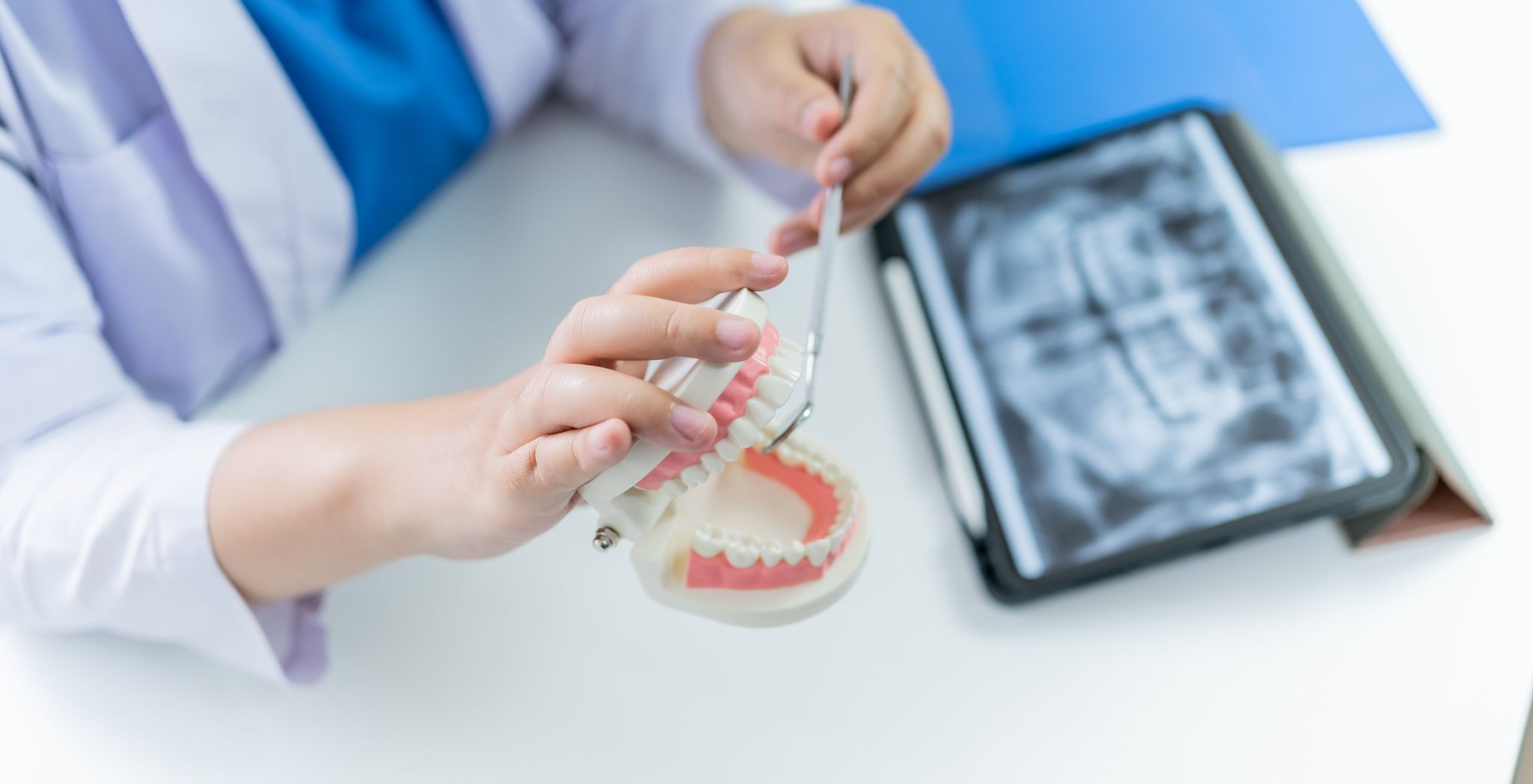Going to the dentist can feel a bit scary for some of us, and if you feel that way, you’re definitely not alone. The feeling of nervousness or even fear when it’s time for a dental appointment is called dental anxiety. It’s a very real and common issue, making it really hard to get the dental care you need.
But what if going to the dentist didn’t have to be a stressful experience? What if you could walk into a dental clinic feeling calm and confident? This blog post is all about helping you do just that. We’ll explore what dental anxiety is, why it happens, and most importantly, we’ll give you practical tips and solutions to help you have a stress-free visit.
What is Dental Anxiety?
Simply put, dental anxiety is a feeling of unease, nervousness, or fear about going to the dentist. For some people, it’s a mild feeling of worry, but for others, it can be so strong that it stops them from making appointments altogether. This can lead to serious problems with their teeth and gums down the track, which is why it’s so important to address these feelings.
Think of it like this: for some people, it’s just a little bit of butterflies in their stomach. For others, it’s a full-on panic that makes them want to run the other way. This range of feelings is what we call dental anxiety or dental fear.
Common Causes of Dental Anxiety
So, why do so many people feel this way? There are a few common reasons:
- Bad Past Experiences: This is a big one. If you had a painful or uncomfortable experience at the dentist when you were a kid, that memory can stick with you for a long time. It’s easy to believe that every future visit will be just as bad.
- Fear of Pain: Many people worry that a dental procedure will hurt. While modern dentistry is designed to be as painless as possible, the thought of sharp tools and needles can be very unsettling.
- Feelings of Helplessness: When you’re in the dental chair, you’re often lying down with your mouth open, and you can’t see what’s happening. This can make you feel like you have no control, which can be a very scary feeling.
- Embarrassment: Some people feel embarrassed about the condition of their teeth, especially if they haven’t been to the dentist in a long time. They worry they’ll be judged or lectured.
- The Sounds and Smells: The sound of the drill or the specific smells of a dental clinic can be powerful triggers for anxiety. These can bring back bad memories or simply make you feel uneasy.
The Impact of Dental Anxiety on Oral Health
When you’re anxious about going to the dentist, it’s easy to put off appointments. You might cancel a check-up or delay getting a filling. While this might feel like a relief in the short term, it can lead to bigger problems later on.
Neglecting regular dental care can lead to:
- Tooth decay and cavities: Small cavities that could have been easily fixed can grow into bigger problems that require more complex procedures.
- Gum disease: Without regular cleanings, plaque and tartar can build up, leading to gum disease, which can cause tooth loss if left untreated.
- Pain and discomfort: Waiting until you have a toothache means you’re going to the dentist in an emergency, which can be a more stressful and painful experience.
- Lower self-esteem: Having unhealthy teeth can make you feel self-conscious about your smile, which can affect your confidence.
It’s a vicious cycle: you’re afraid to go to the dentist, so your oral health gets worse, which makes you even more afraid to go. But the good news is, you can break this cycle.
How to Overcome Dental Anxiety: Practical Tips
Taking small, practical steps can make a huge difference. Here are some things you can do to make your dental visits less stressful.
- Choose the Right Dentist: This is probably the most important step. Look for a dental practice that is known for being kind, gentle, and understanding. You want a dentist who listens to you and takes your fears seriously. A friendly dentist like dentist Berwick, who specialises in nervous patients, can be a great place to start. Don’t be afraid to read reviews or even call the clinic to ask about their approach to dental anxiety.
- Start with a Simple Visit: You don’t have to jump straight into a big procedure. Schedule a simple consultation or a routine cleaning first. This allows you to get to know the dentist and their team, see the clinic, and feel more comfortable in the environment without the pressure of a major treatment.
- Communicate Your Fears: Be open and honest with your dental team. Tell them, “I’m really anxious about this.” A good dentist will appreciate your honesty and will work with you to make you feel at ease. They can explain what they are doing at each step and let you know what to expect.
- Bring a Friend or Family Member: Having a supportive person with you can make you feel safer and more comfortable. They can sit with you in the waiting room and offer a friendly face and a calming presence.
- Book Your Appointment Strategically: Try to schedule your appointment for a time when you won’t be rushed. Maybe a morning appointment so you don’t have all day to worry about it. Make sure you have enough time before and after the appointment to relax.
Techniques for Relaxation During Dental Visits
Once you’re in the dental chair, there are some things you can do to help yourself relax.
- Breathing Exercises: When we’re stressed, our breathing becomes shallow and fast. Deep, slow breaths can help calm your nervous system. Try this: Breathe in slowly through your nose for four seconds, hold your breath for two seconds, and then breathe out slowly through your mouth for four seconds. Repeat this a few times.
- Listen to Music or a Podcast: Many dental clinics have headphones you can use. Listening to your favourite music or a calming podcast can help distract you from the sounds of the dental clinic and put you in a better headspace.
- Use a Stress Ball: Squeezing a stress ball can be a great way to release tension and give your hands something to do.
- Agree on a Signal: Before the procedure starts, agree on a signal with the dentist to let them know if you need to stop. A simple hand raise is a common and effective way to say, “I need a moment.” Knowing you have this control can make a big difference.
How Dentists Help Manage Dental Anxiety
Many dentists today are well-trained in helping anxious patients. They understand that a positive experience is key to building trust and ensuring you come back for future care.
- Patience and Empathy: A good dental team will be patient and understanding. They won’t rush you, and they’ll listen to your concerns without judgment.
- Clear Communication: They will explain every step of the procedure in simple language, so there are no surprises. They will tell you what they are doing and what you might feel, which can help reduce the fear of the unknown.
- Pain Management: Modern dentistry has excellent options for pain relief. The dentist will ensure you are properly numbed and comfortable before they begin any work. Don’t be afraid to ask for more anaesthetic if you feel you need it.
- Creating a Calming Environment: Many clinics are designed to be more relaxing, with soft colours, comfortable chairs, and even a TV on the ceiling to watch during your treatment. A dentist in Pakenham or a dentist Berwick who has put thought into creating a peaceful environment can really help.
Sedation Dentistry: A Solution for Severe Anxiety
For those with very high levels of dental fear, sedation dentistry can be a life-changing option. This is a safe and effective way to help you relax during your treatment.
- Happy Gas (Nitrous Oxide): This is a very common type of sedation. You breathe in a mixture of gases through a small mask, which helps you feel calm and relaxed. The effects wear off quickly once the mask is removed, so you can often drive yourself home after the appointment.
- Oral Sedation: This involves taking a pill a little while before your appointment. It will make you feel drowsy and very relaxed, though you’ll still be conscious. You will need someone to drive you home afterwards.
- IV Sedation: This is for people with extreme anxiety or for very long procedures. The sedative is given directly into your vein, and you will feel like you’ve been asleep during the procedure, even though you are still conscious. You will definitely need someone to drive you home.
The dentist can talk you through which option might be right for you, based on your level of anxiety and the treatment you need.
Talking to The Dentist About Your Anxiety
It’s crucial to have an open conversation with your dental team. Here’s a simple script you can use:
“Hi, I just wanted to let you know that I get really anxious about going to the dentist. I’ve had some bad experiences in the past, and I’m feeling pretty nervous about my appointment.”
That’s all you need to say. A good dentist will take it from there and work with you to make sure your visit is as comfortable as possible. They might suggest breaking up your treatment into shorter appointments, or they might talk to you about sedation options.
Conclusion
Dental anxiety is a widespread issue, but it’s not something you have to live with. By understanding what causes your fears and using the right strategies, you can take control of your dental health.
Remember, finding a caring and empathetic dental team like Woodleigh Waters Dental is the first and most important step. Whether you’re looking for a dentist in Pakenham or a dentist in Berwick, don’t hesitate to ask about our approach to managing dental anxiety.
By communicating your fears, using relaxation techniques, and exploring options like sedation dentistry, you can transform your dental visits from a source of dread into a calm and manageable part of your healthcare routine. Taking care of your teeth is essential for your overall health and confidence, and you deserve to do it without stress or fear. Your journey to a healthier, happier smile starts with a simple, confident step into the right dental clinic.



